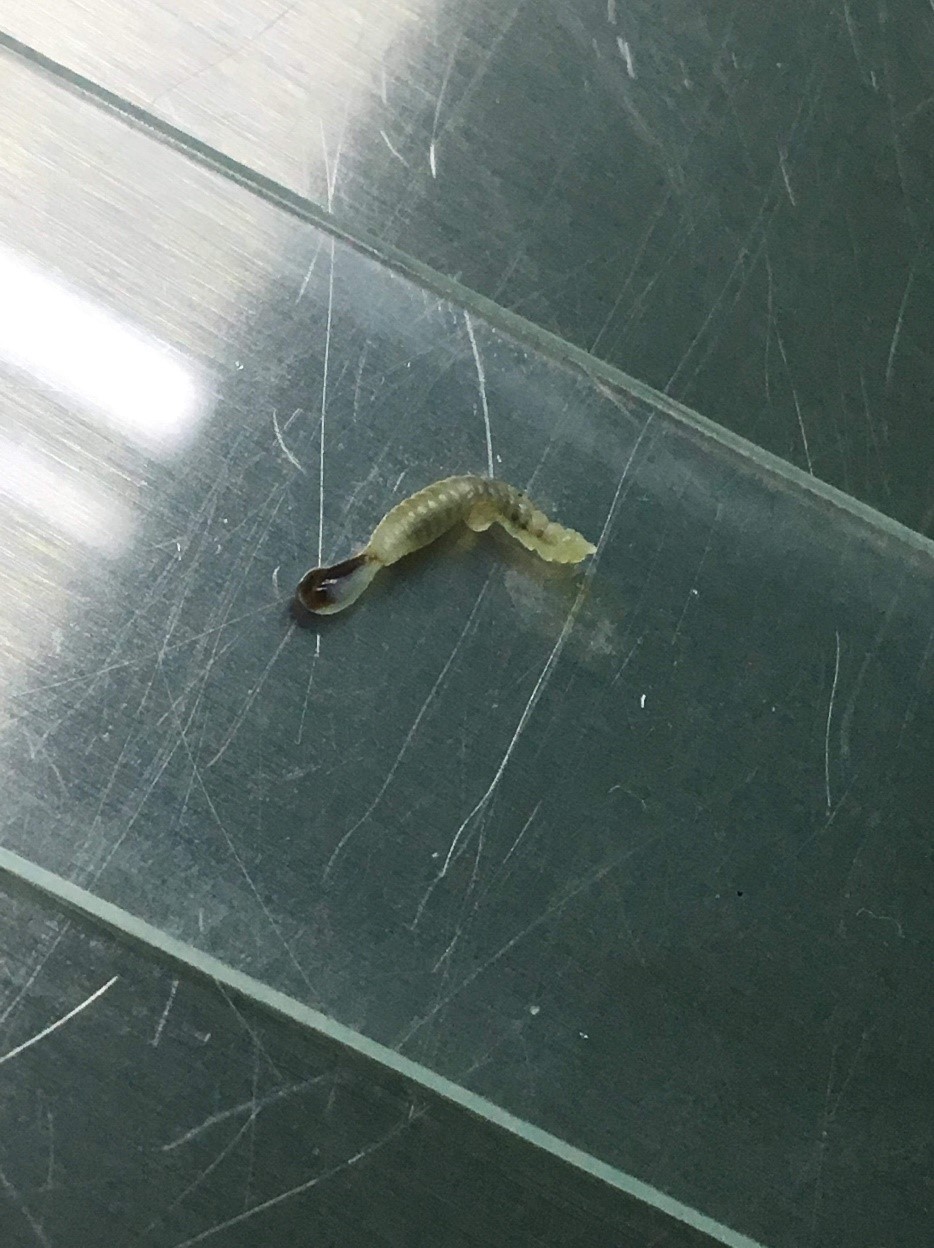Pentastomids
(Armillifer spp., Porocephalus spp.)
Armillifer spp. are parasitic crustaceans belonging to the group Pentastomida, whose immature forms are incidentally discovered within the abdominal cavity and viscera of dogs and cats. They are mostly non-pathogenic.
Distribution
Visceral pentastomiasis has been reported in humans throughout the tropics and subtropics and is considered an emerging zoonosis in West Africa. Armillifer armillatus is present in West and Central Africa, A. moniliformis in Southeast Asia, A. grandis in Africa, A. agkistrodontis in China, and Porocephalus crotali is worldwide distributed.
Clinical signs
Visceral pentastomiasis is usually asymptomatic. Rarely, large parasite loads may result in abdominal or thoracic involvement due to organ dysfunction.
Diagnosis
Nymphs may be incidentally discovered within the liver, mesenteries, spleen, and lungs during surgery (Fig. 1) or coiled opacities of calcified dead parasites may be observed on abdominal or chest radiographs.

Figure 1 Nymph of A. moniliformis (anterior end damaged) incidentally found withiin the omentum of a cat during surgery (Image credit: Dr. S. Teoh)
Treatment
Visceral pentastomiasis is usually asymptomatic and surgical removal of the nymphs should be considered only for symptomatic animals with high parasite loads.
Prevention and Control
Owners should be advised to prevent their animals from hunting and roaming freely.
Public health considerations
Dog (and cats) do not pose a direct risk to humans
